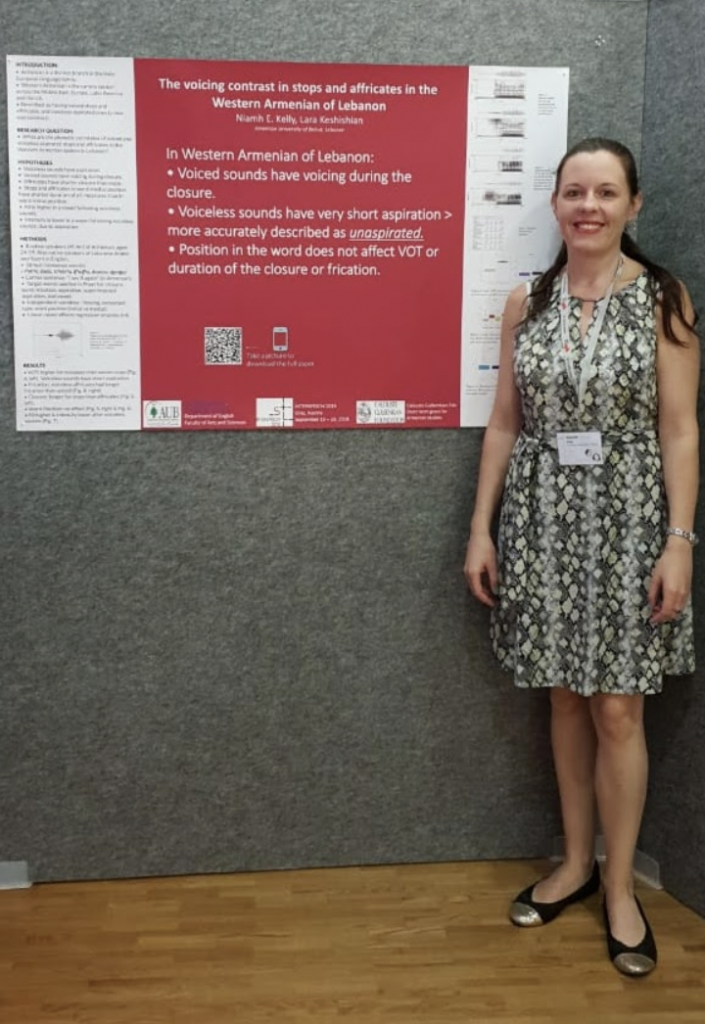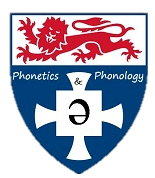Lecturer in Phonetics and Phonology (school of SELLL)
Email: niamh.kelly@newcastle.ac.uk
Staff profile: <link>
Personal website: <link>

Research Interests:
My research interests are phonetics and phonology, and I am also interested in psycholinguistics, multilingualism & second language acquisition, language variation and linguistic typology. I am interested in sound systems from the perspective of both production and perception.
Since September 2022, I am a lecturer in phonetics and phonology in the School of English Literature, Language and Linguistics at Newcastle University in the UK.
As a VAP at UT El Paso in 2021-22, I ran a project examining the production of /l/ sounds by bilingual speakers of English and Spanish from the El Paso region, to investigate the effects of language dominance on velarisation patterns. I am currently examining those recordings.
Previously, at the American University of Beirut, I conducted experiments examining tonal alignment, vowel length, syllable structure and onset type, as well as phrase-final intonation in Lebanese Arabic. I have also published work on aspiration in stops and affricates of Western Armenian and how this is influenced by L2 Arabic vs L2 English.
In 2015-16 I was a postdoctoral researcher at the University of Graz, Austria, working on a project examining the acoustic correlates of lexical stress in Welsh and Welsh English to determine the effect of a speaker’s home language and the interaction in Welsh English of the correlates of stress in English and Welsh.
My dissertation focused on the interaction of lexical pitch accent and sentence-level intonation in Norwegian using both production and perception experiments. I have also done research on tone, phonation and vowel quality in Burmese, ‘imala in Lebanese Arabic, tonal alignment in Palestinian Arabic, the pitch accent of Lithuanian, rhythm in Austrian German, and on dental and alveolar stops in Irish English.
My research integrates approaches from phonetics, psycholinguistics and theoretical phonology, and I focus on understudied language varieties as well as the speech of bilinguals.

